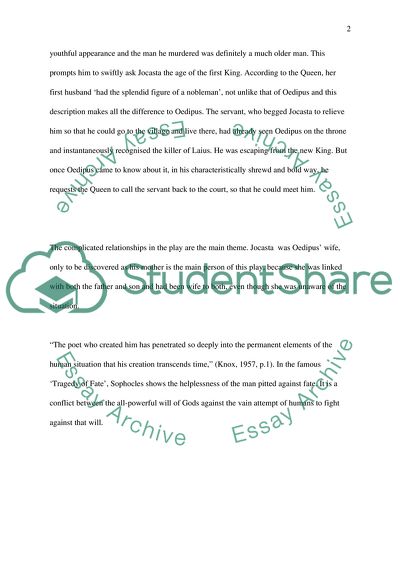Cite this document
(Analyzing Oedipus the King Article Example | Topics and Well Written Essays - 1500 words, n.d.)
Analyzing Oedipus the King Article Example | Topics and Well Written Essays - 1500 words. https://studentshare.org/performing-arts/1536019-analysing-oedipus
Analyzing Oedipus the King Article Example | Topics and Well Written Essays - 1500 words. https://studentshare.org/performing-arts/1536019-analysing-oedipus
(Analyzing Oedipus the King Article Example | Topics and Well Written Essays - 1500 Words)
Analyzing Oedipus the King Article Example | Topics and Well Written Essays - 1500 Words. https://studentshare.org/performing-arts/1536019-analysing-oedipus.
Analyzing Oedipus the King Article Example | Topics and Well Written Essays - 1500 Words. https://studentshare.org/performing-arts/1536019-analysing-oedipus.
“Analyzing Oedipus the King Article Example | Topics and Well Written Essays - 1500 Words”. https://studentshare.org/performing-arts/1536019-analysing-oedipus.


